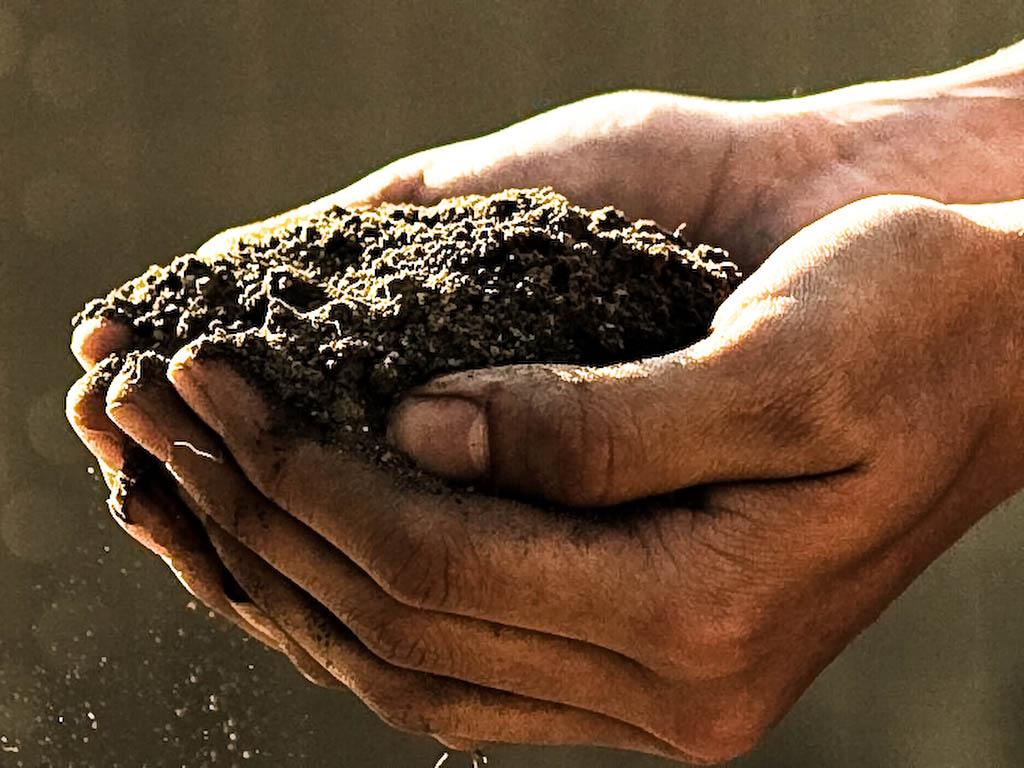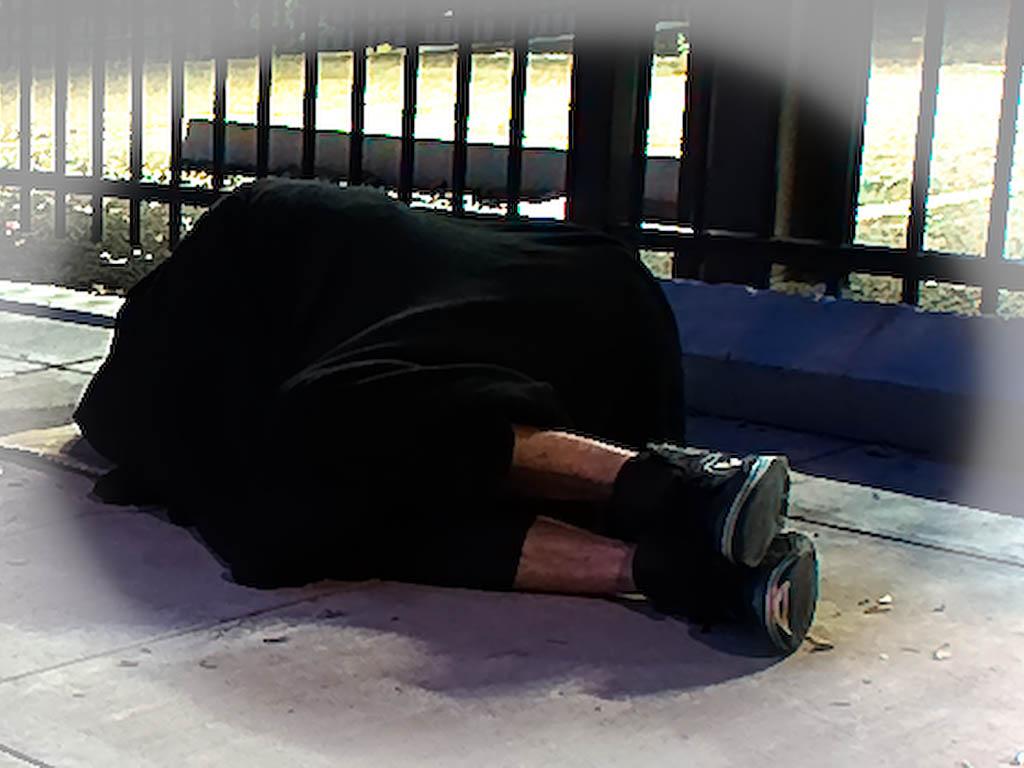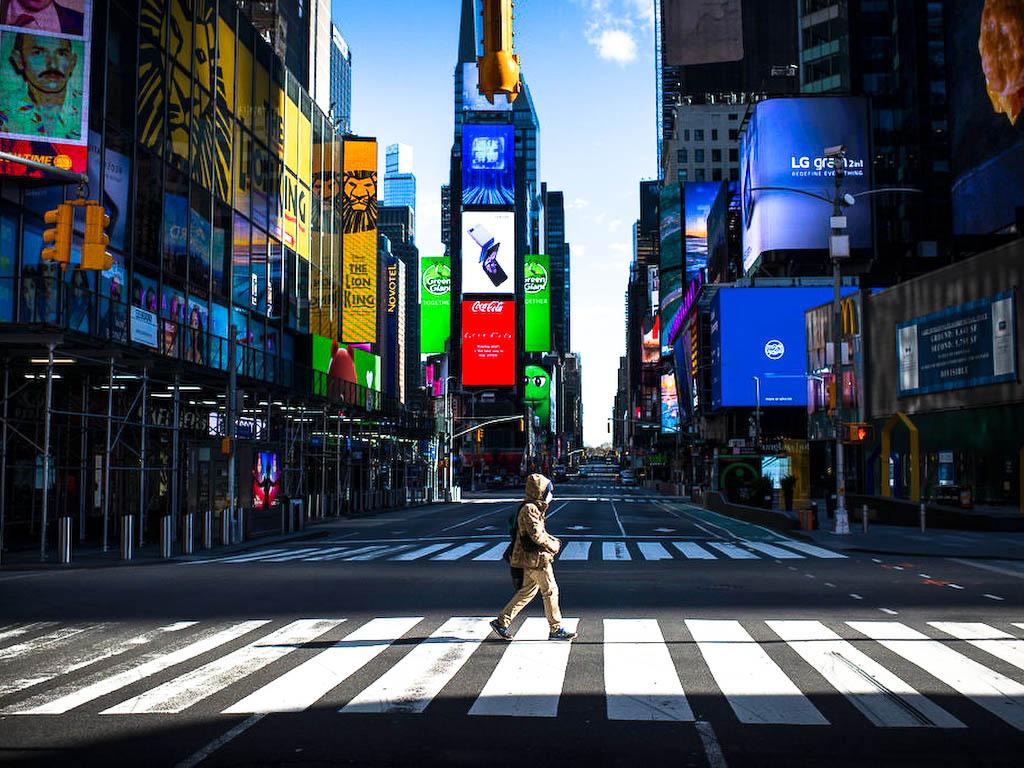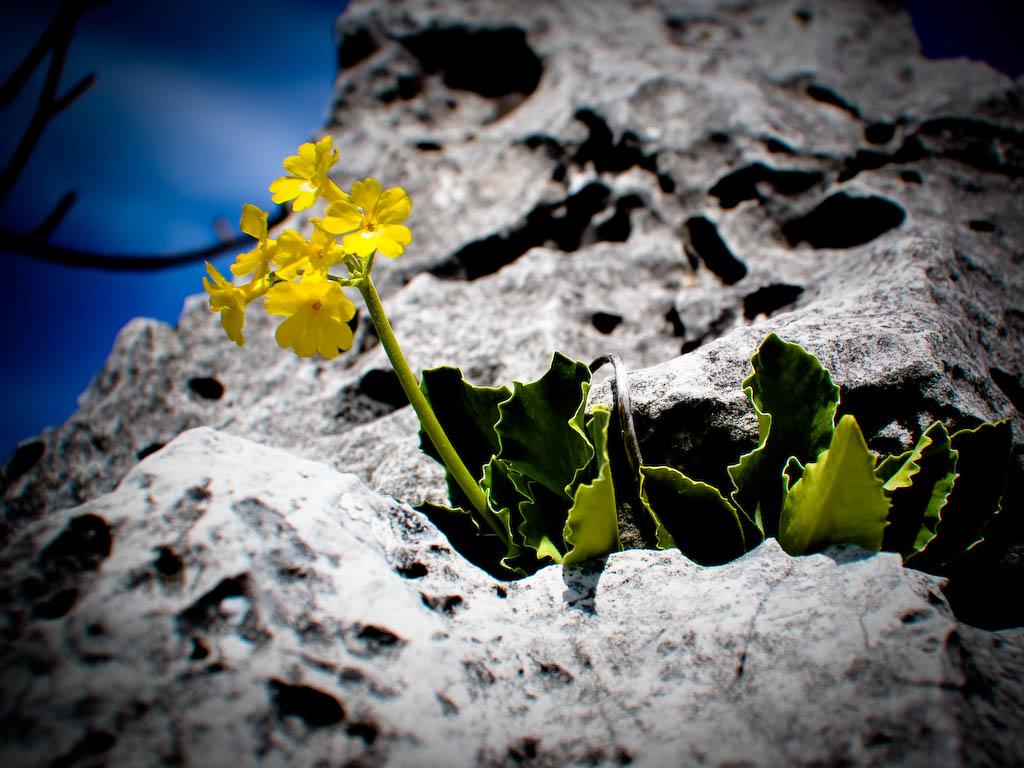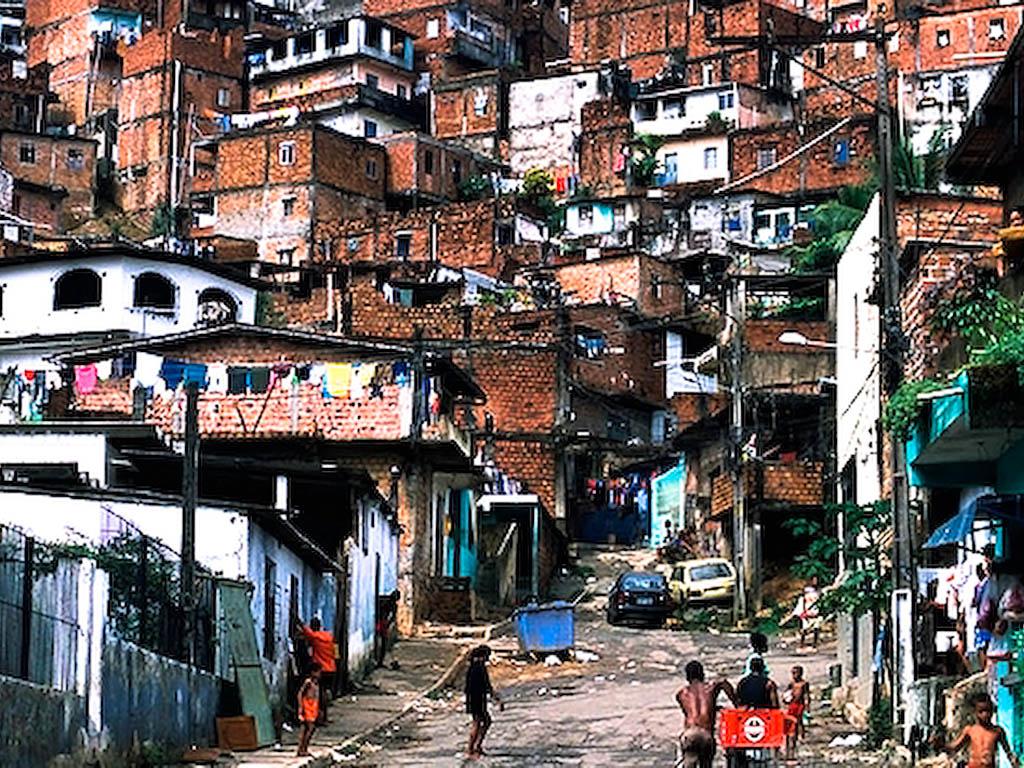Jpic News from John Paul Blog - Vol. 8 - N 5
|
THE NEWS OF THE MONTH
God's silence heals the futureWhy does the Lord seem to be silent? Why does the Almighty not manifest himself with the blaze of His omnipotence? Why his apparent indifference to the tragedy of our lives? Is it true that he cares for us? Are we really important to him? (Free reading of some words of Carlo M. Martini - Message for 1996-1997 year). It is no wonder that people of faith in times of tragedy like this ask themselves such questions which are deeply felt in the heart, disturb our faith, make us think and search. Yet God is on our side and participates in our pain for the evil devastating the earth. He is not a selfless spectator or a cold and distant judge. God suffers for us and with us, for our loneliness, our inability to love and solve problems. Divine suffering is not incompatible with God: it is the suffering of loving care, it is the active and free compassion, the fruit of limitless gratuity. In the journey of life, in the light of the Gospel, the God of Jesus Christ appears to us as the God capable of tenderness and pity to the point of suffering with the world and for the sins of the world. A God who never denies his children. A humble God, who manifests His omnipotence and His freedom precisely in His apparent weakness in the face of evil. A God who out of love accepts to bear the weight of sin, and the pain that sin introduces into the world. Through the Jesus' death on the cross, God tells us how much good can arise from evil, how much life from death. The contradiction is not in God, but in our continuous desire to be gratified by everything and everyone, even by God. Perhaps we have to understand that the mystery of a dead and risen Lord is at the core of the Gospel and of our faith, and it is even the key of human existence! Go on reading | |
|
THE GOOD NEWS
In a "Monde" forum, a group of European writers and academic women, including Annie Ernaux, Elena Ferrante, Julia Kristeva and Cristina Comencini, called on governments to show solidarity and respect for the common values of the continent during the reconstruction which will necessarily follow the Covid-19 pandemic. Collective of writers and university women, April 10, 2020 Le Monde Here is the call of writers and academic women: "We demand that national egoisms drop" From the houses where we are confined, from these houses which have been our living and care spaces for centuries, these houses to which we return today after work to take care of our families, from these houses we write to Europe's governments and rulers. We are not asking, we are demanding, in the face of this tragedy that is the Covid-19 pandemic that strikes us all, that national egoisms drop, that Europe be united, solidaridly and responsibly. Women have always shown great strength in reacting and holding families together, feeding and caring for them. They showed it during the last world war, they show it today, with men, to face the pandemic: they are indeed overwhelmingly committed in the activities currently authorized. Unlike in the post-war era, this time the women are there. We are on an equal footing, we want reconstruction to be done according to the requirements and values inscribed in our history, in our experiences that have been neglected for too long. The epidemic has returned to be the center of our lives in the human body, family, relationships, loneliness, health, the relationship between generations, between the economy and people. If Europe manages to cope with this shock, it will be because these values, which were mainly attributed to the "private" sphere, are becoming these days public values. These values are fighting the spread of the disease, they are - we hope - winning. Europe must be rebuilt on these values, on women's strength and skills; Europe must give life to a great common project which takes these priorities into account. In their houses, women, separated from each other, are united in this common will. Signatories: Ursula Apitzsch, politologue et sociologue, université de Francfort, Cornelia Goethe Centrum ; Bojana Bratic, traductrice, Serbie ; Cristina Comencini, écrivaine et réalisatrice, Italie ; Marcella Diemoz, physicienne, Institut national de physique nucléaire, Italie ; Dubravka Duric, poétesse et chercheuse, Serbie ; Annie Ernaux, écrivaine, France ; Elena Ferrante, écrivaine, Italie ; Ute Gerhard, sociologue, université de Francfort ; Lena Inowlocki, sociologue, université de Francfort ; Julia Kristeva, linguiste, psychanalyste, philosophe et écrivaine, France ; Dacia Maraini, écrivaine, Italie ; Gertrude Moser-Wagner, artiste, Autriche ; Laura Pugno, écrivaine, Italie ; Annalisa Rosselli, économiste, Académie des Lyncéens, Italie. Here the source « Nous exigeons que tombent les égoïsmes nationaux ». See also ‘We can’t go back to normal’: how will coronavirus change the world? And also The hidden heroes of COVID-19: My public health co-workers | |
|
THE WORST NEWS
Living on the streets is not quarantineThe United Nations NGO Working Group to End Homelessness (WGEH), while thanking the UN, particularly the ECOSOC Council’s Commission for Social Development, for their recent focus on the work of ending homelessness around the world, extends its gratitude to all Member States who have already included homelessness in their COVID-19 relief efforts. At the same time it advocates for "A strong and thoughtful response to the intersections of homelessness and COVID-19" to ensure that “no one is left behind” while pushing forward for the achievement of the UN 2030 Agenda for SD. The United Nations NGO Working Group to End Homelessness (WGEH) recognizes that people experiencing homelessness are dangerously vulnerable to the COVID-19 pandemic. The coronavirus has potentially devastating consequences for those living on the streets or in crowded congregate shelters, where they cannot quarantine themselves, wash their hands, or protect themselves as we have all been instructed to do. As Leilani Farha, UN Special Rapporteur on the Right to Adequate Housing, noted, “Housing has become the frontline of defense against coronavirus. Home has rarely been more of a life or death situation.” How does one shelter on the spot, maintain distance, wash their hands, wear masks or gloves, isolate or quarantine, when one has no home and minimal other resources? We must recognize that those sleeping on our streets are nonetheless a part of our communities, and that we are only as safe and as healthy as our most vulnerable neighbors. Go on reading | |
|
CELEBRATING!
Keeping them in our memoryEl día de los muertos (The deceased's day) is generally celebrated in November, but in this pandemic time it is an everyday reality. This video, short and silent, designed to celebrate this day, weaves the deceased's memory with the typical quite universal gesture of flowers on the grave, with the display of skulls and skeletons, childish games and special sweets, esoteric dances and music which are the custom of the Latin America's countries. It adds the certainty of African cultures and of the believers that the deceased continue to be present in the livings' life: it is enough to be able to grasp the signs of their presence. It is sad to remember of so many loved ones that Covid 19 has taken away from our lives all together with many other diseases that in this period of emergency charge the price of being neglected. But it is beautiful and a source of comfort to think that the dead are invisible in our history but not absent, they have left the earth but not life and perhaps they are in peace more than the living. The smile of the girl at the end of the video recalls the words that Saint Augustine put on the lips of his mother Monica, who had just died: If you love me, don't cry. Watch the video here | |
|
TAKE ACTION NOW!
First, Save Lives!The Civil Society Action Committee to protect migrants and refugees in this global COVID-19 pandemic crisis released a Global Civil Society Statement on April 7, 2020 to address their concerns with how migrants and refugees should be handled during this COVID-19 pandemic. The COVID-19 pandemic has put a strain on resources and has drastically lowered the quality of life for everyone worldwide. However, migrants and refugees were already struggling prior to the onset of this pandemic, and this has only worsened their situations. The global community needs to come together to stand in solidarity with them and be advocates for their protection. The Civil Society Action Committee in their statement, outlines the principles that should be considered when making decisions concerning migrants and refugees as well as offering suggestions as to how to better mitigate the spread of the virus with tips specifically tailored for migrant and refugee communities. Some people neglect to remember that migrants and refugees are actively involved in the labor force, even though they have historically been denied the right to adequate safety measures and considerations. During this time, workplaces are being advised to provide their employees with safety precautions such as hand sanitizers and other equipment that will help prevent the spread of the virus, such as gloves and masks. These measures need also to be provided for migrants and refugees because continuing to neglect them especially during this dangerous time, directly endangers their health and well being. Go on reading | |
|
KNOWING THE SDGs
Goal 15: Life on LandSustainably manage forests, combat desertification, halt and reverse land degradation, halt biodiversity loss. Forests cover 30.7 per cent of the Earth’s surface and, in addition to providing food security and shelter, they are key to combating climate change, protecting biodiversity and the homes of the indigenous population. By protecting forests, we will also be able to strengthen natural resource management and increase land productivity. At the current time, thirteen million hectares of forests are being lost every year while the persistent degradation of drylands has led to the desertification of 3.6 billion hectares. Even though up to 15% of land is currently under protection, biodiversity is still at risk. Deforestation and desertification – caused by human activities and climate change – pose major challenges to sustainable development and have affected the lives and livelihoods of millions of people in the fight against poverty. Efforts are being made to manage forests and combat desertification. There are two international agreements being implemented currently that promote the use of resources in an equitable way. Financial investments in support of biodiversity are also being provided. The Lion’s Share Fund On 21 June, 2018, the United Nations Development Programme (UNDP), FINCH and founding partner Mars, Incorporated, announced the Lion’s Share, an initiative aimed at transforming the lives of animals across the world by asking advertisers to contribute a percentage of their media spend to conservation and animal welfare projects. The Lion’s Share will see partners contribute 0.5 percent of their media spend to the fund for each advertisement they use featuring an animal. Those funds will be used to support animals and their habitats around the world. The Fund is seeking to raise US0m a year within three years, with the money being invested in a range of wildlife conservation and animal welfare programs to be implemented by United Nations and civil society organizations. Facts and Figures Forests
Desertification
Biodiversity
Goal 15 targets 1-. By 2020, ensure the conservation, restoration and sustainable use of terrestrial and inland freshwater ecosystems and their services, in particular forests, wetlands, mountains and drylands, in line with obligations under international agreements 2-. By 2020, promote the implementation of sustainable management of all types of forests, halt deforestation, restore degraded forests and substantially increase afforestation and reforestation globally 3-. By 2030, combat desertification, restore degraded land and soil, including land affected by desertification, drought and floods, and strive to achieve a land degradation-neutral world 4-. By 2030, ensure the conservation of mountain ecosystems, including their biodiversity, in order to enhance their capacity to provide benefits that are essential for sustainable development 5-. Take urgent and significant action to reduce the degradation of natural habitats, halt the loss of biodiversity and, by 2020, protect and prevent the extinction of threatened species 6-. Promote fair and equitable sharing of the benefits arising from the utilization of genetic resources and promote appropriate access to such resources, as internationally agreed 7-. Take urgent action to end poaching and trafficking of protected species of flora and fauna and address both demand and supply of illegal wildlife products 8-. By 2020, introduce measures to prevent the introduction and significantly reduce the impact of invasive alien species on land and water ecosystems and control or eradicate the priority species 9-. By 2020, integrate ecosystem and biodiversity values into national and local planning, development processes, poverty reduction strategies and accounts A-. Mobilize and significantly increase financial resources from all sources to conserve and sustainably use biodiversity and ecosystems B-. Mobilize significant resources from all sources and at all levels to finance sustainable forest management and provide adequate incentives to developing countries to advance such management, including for conservation and reforestation C-. Enhance global support for efforts to combat poaching and trafficking of protected species, including by increasing the capacity of local communities to pursue sustainable livelihood opportunities, | |
|
KEEP HOPING
It was in March 2020The streets were empty, the shops closed, people couldn’t get out. But spring did not know and the flowers began to bloom, the sun shone, the birds were singing, swallows would soon arrive, the sky was blue, the morning was coming earlier. It was March 2020 Young people had to study online and find jobs at home, people could no longer go shopping or go to the hairdresser. Soon there would be no more room in hospitals and people continued to get sick. But spring did not know, the time to go to the garden arrived, the grass greened. It was March 2020 People were put in lockdown to protect grandparents, families and children. No more reunions or family party meals. The fear became real and the days were therefore similar. But spring did not know, apple trees, cherry trees and others bloomed, the leaves grew. People started reading, playing with family, learning a language. They sang on the balcony inviting the neighbors to do the same. They learned a new language, to show solidarity and focused on other values. It was March 2020 People realized the importance of health, of suffering, of this world that had stopped, of the economy that has plummeted. But spring didn’t know. The flowers gave way to fruit, the birds made their nest, the swallows had arrived. Read this, share it and stay in love (Jean-Paul Roch). See the text through a video
The soul's spring comes when it wants, it doesn't follow a season, but it bears fruit when a heart awakens to the blossoming of a new emotion (S. Shan) | |
|
WORTH THINKING ON
Global responses to the socio-economic impacts of Covid-19As the number of corona-virus cases continues to grow, concerns are simultaneously growing about the current and long-term effects this will have on certain demographics human groups — specifically, women, the youth, migrant workers, and many employees in precarious jobs around the world. An United Nations (UN) report “Shared Responsibility, Global Solidarity: Responding to the socio-economic impacts of COVID-19”. This report launched in April detailed how some human groups are affected disproportionately by the current pandemic and quarantine. At the centre of it remains one demographic that likely bear the strongest brunt of it: women. “The fact that women make up 70 percent of the global health workforce puts them at greater risk of infection,” read part of the report. “The current crisis threatens to push back the limited gains made on gender equality and exacerbate the feminisation of poverty, vulnerability to violence, and women’s equal participation in the labour force.” A burden on women Just because women make up almost three-quarters of global healthcare professionals, does not mean they’re given the proper respect. According to a March 2019 report by the World Health Organisation, despite having such a crucial role in the public health industry, women continue to face various kinds of abuse or negligence in society, including but not limited to being attributed to a “lower status” or engaging in paid and often, unpaid roles, and being subject to gender bias and harassment. Meanwhile, the requirement of child-care can hinder a woman’s ability to work during the pandemic. According to the Centre for American Progress, currently millions of healthcare workers have a child under the age of 14, who might be struggling to manage between going to work and taking care of their children. Go on reading | |
|
RESOURCES
The Pandemic MirrorThe corona-virus has thrown the world into a tailspin. The closure of schools and stores, the dramatic spike in unemployment, the precipitous fall of the stock market and talk of recession has created a global climate of panic, anxiety, fear and depression. It is not unlikely that the rate of suicide will rise, as despair sets in. While Facebook posts of friendship, poems, and “we’re in this together” posts are helpful, reassuring us in the moment that we are not alone, the fact is, feelings of existential loneliness and isolation abound. College students now completing their courses online at home express anxiety, loneliness and feelings of being disconnected from friends and social relationships, the stuff that makes college life memorable. This may be the first time in the history that graduation is online. Life has become dystrophic and we are not sure if technology is our friend or our foe. It is difficult to look existential threats in the face and rationally discuss outcomes. The truth is the future is unknown and unpredictable; things may get a lot worse before they get better, or things may get better temporarily, or simply remain in the flux and flow of uncertainty. What is even more alarming is that we are waiting for this crisis “to pass” so that we can return to “normal.” We anticipate that life will continue “as usual” once we find a vaccine for COVID19. But what is “normal?” And here is perhaps the biggest reality staring us in the face; we have no social, psychological, spiritual/religious, political or economic tools to deal with breakdown, chaos and disequilibrium that mark our present age. We have become so thoroughly conditioned by the modern framework of individualism and of mechanistic systems, objective, controllable, manageable and profitable systems, that any disorder seems like a voiceless defect to be quickly remedied. Go on reading | |
|
WITNESSING
The Covid-19 pandemic advocacyAdvocacy is Re-active while "forcing" us because problems or issues are already there. Then we use advocacy to respond, seeking to address or reducing their impact. The best Re-active Advocacies are those brought about by reality strengths who "are forced" to act together because no one can avoid them, because they go beyond individuals, organizations and even states' power. Covid-19's pandemic is surely one of the most strong reality strengths. Any advocacy should have the poor and marginalized at its centre and carried out For, With, By the poor and marginalized. We can see, therefore, as a "gift" coming from actual human suffering advocacy blossoming everywhere on behalf of the neglected and discarded parts of our global society. On March 23rd, the United Nations (UN) Secretary-General Antonio Guterres appealed for a global ceasefire. He urged all parties in conflict to lay down arms and allow war-torn countries to fight the common enemy instead, namely the corona-virus pandemic. He renewed his call on April 2 because "The worst is yet to come. The Covid-19 storm is now coming to all these theatres of conflict," and “the fury of the virus illustrates the folly of war.” Echoing his words, Pope Francis sent a message in a live streamed address from Rome to a quarantined world (See the videoed address here). Go on reading |

- Office P.O. Box 138 - Montclair NJ 07042 0138 US
- Please, share your suggestions, opinions, doubts and ideas writing to pezzijp@jpic-jp.org
- You can subscribe also by writing to webmaster@jpic-jp.org
- For all back issues www.combonimissionaries.org - www.comboni.org
- Copyright © www.jpic-jp.org


